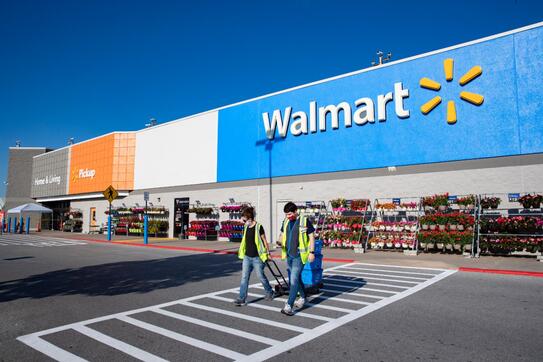NEW YORK — June 2, 2011 — A new study by Columbia Business School Professor Paul Ingram, Kravis Professor Business, Management and senior scholar at the Jerome A. Chazen Institute for International Business at Columbia Business School; Hayagreeva Rao, Atholl McBean Professor of Organizational Behavior and Human Resources, Stanford Graduate School of Business; and Qingyuan (Lori) Yue, Assistant Professor of Management and Organization, USC Marshall School of Business, found evidence of how firms engage in regulatory arbitrage and make decisions based on a state’s regulatory policies. The study, which is featured in this month’s American Sociological Review, flagship journal of the American Sociological Association (ASA), explored various states’ right-to-work (RTW) laws and Walmart store openings between 1998 through 2005, and discovered that Walmart was more likely to propose and open new stores in RTW states located near the borders of non-RTW states, even in the face of protests.
RTW laws prohibit unions and employers from entering agreements that make union membership a condition of employment. Twenty-two of 50 US states have variations of right-to-work laws. Under regulatory arbitrage, if regulatory polices do not suit business firms’ interests, they will locate their operations in pro-business states, creating an incentive for other states to become pro-business.In their study, the researchers aimed to explore if RTW policies can signal a pro-business environment for certain kinds of businesses, such as labor-intensive ones. In this case, from 1998 through 2005, Walmart proposed 102 store openings within 25 miles of borders between RTW and non-RTW states. The study followed each proposal to gauge the stores that eventually opened. The company’s store proposals are protested often, but despite protests, the researchers found that Walmart was more likely to propose and open new stores in RTW states located near the borders of non-RTW states even in the face of protests.
"This is interesting because Walmart is not unionized," noted Professor Paul Ingram of Columbia Business School. "We take this as an indication that RTW states are perceived to have more business-friendly policies, and Walmart prefers to do business in these states."
The results provide evidence of how firms engage in regulatory arbitrage: Walmart can select stores in states friendlier to business because its stores can draw customers from about 50 miles away. The study has important implications for policymakers, as states and countries have to consider competition from nearby territories when drafting laws.
"Neither employees nor companies are hostage to a location — or its regulations — anymore," Professor Ingram elaborated.
###


